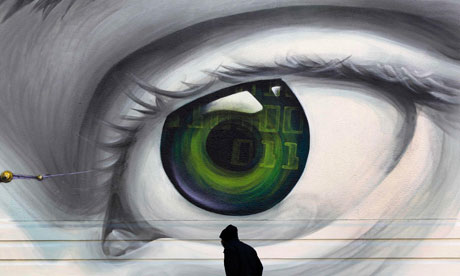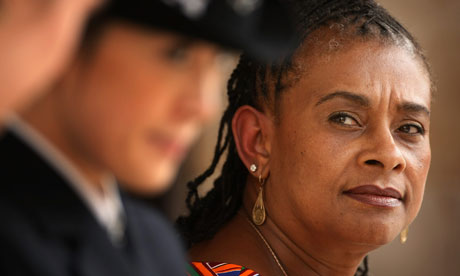'People will forgive you for being wrong, but they will never forgive you for being right - especially if events prove you right while proving them wrong.' Thomas Sowell
Search This Blog
Showing posts with label innocent. Show all posts
Showing posts with label innocent. Show all posts
Wednesday, 14 December 2022
Monday, 13 April 2020
Saturday, 15 April 2017
Why rightwingers are desperate for Sweden to ‘fail’
Christian Christen in The Guardian
Of course Sweden isn’t perfect, but those who love to portray it as teeming with terrorists and naive towards reality, are just cynical hypocrites

‘When terrible events take place, they are framed as evidence of the decline and fall of the European social democratic project, the failure of European immigration policies and of Swedish innocence lost.’ Photograph: Fredrik Sandberg/AFP/Getty Images
There are few countries in the world that have “lost their innocence” as many times as Sweden. Even before a suspected terrorist and Isis supporter killed four and injured many more in last week’s attack in central Stockholm, Sweden’s policies were being portrayed on the programmes of Fox News and pages of the Daily Mail as, at best, exercises in well-meaning-but-naive multiculturalism, and at worst terrorist appeasement.
So, when terrible events take place, they are framed as evidence of the decline and fall of the European social democratic project, the failure of European immigration policies and of Swedish innocence lost.
When Donald Trump argued against the intake of Syrian refugees to the US earlier this year, he used supposed problems in Sweden as part of his rationale. “You look at what’s happening last night in Sweden,” the president said at a rally in Florida in February. “Sweden. Who would believe this? Sweden. They took in large numbers. They’re having problems like they never thought possible.” The White House later clarified that Trump had been speaking about general “rising crime”, when he seemed to be describing a then non-existent terror attack.
Sweden is a capitalist, economic power – usually found near the top of rankings of innovative and competitive economies
The obsession with Sweden has a lot to do with the country’s history of taking in refugees and asylum seekers, combined with social democratic politics. Both are poison to the political right. When prime minister Olof Palme was shot walking home (without bodyguards) from a cinema in 1986, we were told that Swedish innocence and utopian notions of a non-violent society had come to an end. But Swedes miraculously regained their innocence, only to lose it again in 2003 when the popular foreign minister Anna Lindh (also without bodyguards) was stabbed to death in a Stockholm department store. This possession and dispossession of innocence – which some call naivety – has ebbed and flowed with the years.
The election to parliament and subsequent rise of the anti-immigration Sweden Democrats were discussed in similar terms, as was the decision in late 2015 by the Swedish government to halt the intake of refugees after a decades-long policy of humanitarian acceptance.
Yet the notion of a doe-eyed Sweden buffeted by the cruel winds of the real world is a nonsense. Sweden is an economic power – usually found near the top of rankings of innovative and competitive economies. Companies that are household names, from H&M to Ericsson and Skype, and food packaging giant Tetra Pak, are Swedish. It plays the capitalist game better than most (and not always in an ethical manner. The country is, per capita, one of the largest weapons exporters in the world. As for the argument that Swedes are in denial, unwilling to discuss the impact of immigration? This comes as news to citizens who see the issue addressed regularly in the Swedish media, most obviously in the context of the rise of the Sweden Democrats.
There are few countries in the world that have “lost their innocence” as many times as Sweden. Even before a suspected terrorist and Isis supporter killed four and injured many more in last week’s attack in central Stockholm, Sweden’s policies were being portrayed on the programmes of Fox News and pages of the Daily Mail as, at best, exercises in well-meaning-but-naive multiculturalism, and at worst terrorist appeasement.
So, when terrible events take place, they are framed as evidence of the decline and fall of the European social democratic project, the failure of European immigration policies and of Swedish innocence lost.
When Donald Trump argued against the intake of Syrian refugees to the US earlier this year, he used supposed problems in Sweden as part of his rationale. “You look at what’s happening last night in Sweden,” the president said at a rally in Florida in February. “Sweden. Who would believe this? Sweden. They took in large numbers. They’re having problems like they never thought possible.” The White House later clarified that Trump had been speaking about general “rising crime”, when he seemed to be describing a then non-existent terror attack.
Sweden is a capitalist, economic power – usually found near the top of rankings of innovative and competitive economies
The obsession with Sweden has a lot to do with the country’s history of taking in refugees and asylum seekers, combined with social democratic politics. Both are poison to the political right. When prime minister Olof Palme was shot walking home (without bodyguards) from a cinema in 1986, we were told that Swedish innocence and utopian notions of a non-violent society had come to an end. But Swedes miraculously regained their innocence, only to lose it again in 2003 when the popular foreign minister Anna Lindh (also without bodyguards) was stabbed to death in a Stockholm department store. This possession and dispossession of innocence – which some call naivety – has ebbed and flowed with the years.
The election to parliament and subsequent rise of the anti-immigration Sweden Democrats were discussed in similar terms, as was the decision in late 2015 by the Swedish government to halt the intake of refugees after a decades-long policy of humanitarian acceptance.
Yet the notion of a doe-eyed Sweden buffeted by the cruel winds of the real world is a nonsense. Sweden is an economic power – usually found near the top of rankings of innovative and competitive economies. Companies that are household names, from H&M to Ericsson and Skype, and food packaging giant Tetra Pak, are Swedish. It plays the capitalist game better than most (and not always in an ethical manner. The country is, per capita, one of the largest weapons exporters in the world. As for the argument that Swedes are in denial, unwilling to discuss the impact of immigration? This comes as news to citizens who see the issue addressed regularly in the Swedish media, most obviously in the context of the rise of the Sweden Democrats.

Stockholm attack suspect 'known to security services'
Between 2014 and 2016, Sweden received roughly 240,000 asylum seekers: far and away the most refugees per capita in Europe. But the process has not been smooth. Throughout 2016 and 2017, the issue of men leaving Sweden to fight for Isis has been a major story, as has the Swedish government’s perceived lack of preparation about what to do when these fighters return. There is also much debate on the practice of gender segregation in some Muslim schools in Sweden.
As Stockholm goes through a period of mourning for last week’s attack, it is worth asking: is Sweden the country divorced from reality? If we are speaking of naivety in relation to terrorism, a good place to start might be US foreign policy in the Middle East , and not Sweden’s humanitarian intake of the immigrants and refugees created (at least in part) as a result of that US policy.
Has Swedish immigration policy always been well thought-out? No. Is Sweden marked by social and economic divisions? Yes. But the presentation of Sweden as some kind of case study in failed utopianism often comes from those who talk a big game on democracy, human rights and equality, but who refuse to move beyond talk into action.
So, when pundits and experts opine on Swedish “innocence lost” it is worth remembering that Sweden has never been innocent. It is also worth remembering that Sweden was willing to put its money where its mouth was when it came to taking in refugees and immigrants fleeing the conflicts and instability fuelled by countries unwilling to deal with the consequences of their actions. This shirking of responsibility while condemning the efforts of others is far worse than being naive. It’s cynical hypocrisy.
Wednesday, 21 August 2013
So the innocent have nothing to fear?
After David Miranda we now know where this leads
The destructive power of state snooping is on display for all to see. The press must not yield to this intimidation

'But it remains worrying that many otherwise liberal-minded Britons seem reluctant to take seriously the abuses revealed in the nature and growth of state surveillance.' Photograph: Yannis Behrakis/Reuters
You've had your fun: now we want the stuff back. With these words the British government embarked on the most bizarre act of state censorship of the internet age. In a Guardian basement, officials from GCHQ gazed with satisfaction on a pile of mangled hard drives like so many book burners sent by the Spanish Inquisition. They were unmoved by the fact that copies of the drives were lodged round the globe. They wanted their symbolic auto-da-fe. Had the Guardian refused this ritual they said they would have obtained a search and destroy order from a compliant British court.
Two great forces are now in fierce but unresolved contention. The material revealed by Edward Snowden through the Guardian and the Washington Post is of a wholly different order from WikiLeaks and other recent whistle-blowing incidents. It indicates not just that the modern state is gathering, storing and processing for its own ends electronic communication from around the world; far more serious, it reveals that this power has so corrupted those wielding it as to put them beyond effective democratic control. It was not the scope of NSA surveillance that led to Snowden's defection. It was hearing his boss lie to Congress about it for hours on end.
Last week in Washington, Congressional investigators discovered that the America's foreign intelligence surveillance court, a body set up specifically to oversee the NSA, had itself been defied by the agency "thousands of times". It was victim to "a culture of misinformation" as orders to destroy intercepts, emails and files were simply disregarded; an intelligence community that seems neither intelligent nor a community commanding a global empire that could suborn the world's largest corporations, draw up targets for drone assassination, blackmail US Muslims into becoming spies and haul passengers off planes.
Yet like all empires, this one has bred its own antibodies. The American (or Anglo-American?) surveillance industry has grown so big by exploiting laws to combat terrorism that it is as impossible to manage internally as it is to control externally. It cannot sustain its own security. Some two million people were reported to have had access to the WikiLeaks material disseminated by Bradley Manning from his Baghdad cell. Snowden himself was a mere employee of a subcontractor to the NSA, yet had full access to its data. The thousands, millions, billions of messages now being devoured daily by US data storage centres may be beyond the dreams of Space Odyssey's HAL 9000. But even HAL proved vulnerable to human morality. Manning and Snowden cannot have been the only US officials to have pondered blowing a whistle on data abuse. There must be hundreds more waiting in the wings – and always will be.
There is clearly a case for prior censorship of some matters of national security. A state secret once revealed cannot be later rectified by a mere denial. Yet the parliamentary and legal institutions for deciding these secrets are plainly no longer fit for purpose. They are treated by the services they supposedly supervise with falsehoods and contempt. In America, the constitution protects the press from pre-publication censorship, leaving those who reveal state secrets to the mercy of the courts and the judgment of public debate – hence the Putinesque treatment of Manning and Snowden. But at least Congress has put the US director of national intelligence, James Clapper, under severe pressure. Even President Barack Obama has welcomed the debate and accepted that the Patriot Act may need revision.
In Britain, there has been no such response. GCHQ could boast to its American counterpart of its "light oversight regime compared to the US". Parliamentary and legal control is a charade, a patsy of the secrecy lobby. The press, normally robust in its treatment of politicians, seems cowed by a regime of informal notification of "defence sensitivity". This D-Notice system used to be confined to cases where the police felt lives to be at risk in current operations. In the case of Snowden the D-Notice has been used to warn editors off publishing material potentially embarrassing to politicians and the security services under the spurious claim that it "might give comfort to terrorists".
Most of the British press (though not the BBC, to its credit) has clearly felt inhibited. As with the "deterrent" smashing of Guardian hard drives and the harassing of David Miranda at Heathrow, a regime of prior restraint has been instigated in Britain whose apparent purpose seems to be simply to show off the security services as macho to their American friends.
Those who question the primacy of the "mainstream" media in the digital age should note that it has been two traditional newspapers, in London and Washington, that have researched, co-ordinated and edited the Snowden revelations. They have even held back material that the NSA and GCHQ had proved unable to protect. No blog, Twitter or Facebook campaign has the resources or the clout to confront the power of the state.
There is no conceivable way copies of the Snowden revelations seized this week at Heathrow could aid terrorism or "threaten the security of the British state" – as charged today by Mark Pritchard, an MP on the parliamentary committee on national security strategy. When the supposed monitors of the secret services merely parrot their jargon against press freedom, we should know this regime is not up to its job.
The war between state power and those holding it to account needs constant refreshment. As Snowden shows, the whistleblowers and hacktivists can win the occasional skirmish. But it remains worrying that many otherwise liberal-minded Britons seem reluctant to take seriously the abuses revealed in the nature and growth of state surveillance. The arrogance of this abuse is now widespread. The same police force that harassed Miranda for nine hours at Heathrow is the one recently revealed as using surveillance to blackmail Lawrence family supporters and draw up lists of trouble-makers to hand over to private contractors. We can see where this leads.
I hesitate to draw parallels with history, but I wonder how those now running the surveillance state – and their appeasers – would have behaved under the totalitarian regimes of the 20th century. We hear today so many phrases we have heard before. The innocent have nothing to fear. Our critics merely comfort the enemy. You cannot be too safe. Loyalty is all. As one official said in wielding his legal stick over the Guardian: "You have had your debate. There's no need to write any more."
Yes, there bloody well is.
Tuesday, 25 June 2013
With the Met Police, if you are innocent you have everything to worry about
Peter Francis's revelations show the need for a judicial inquiry – so the public can see how far our democracy has been eroded

Doreen Lawrence in 2008 at the memorial service marking 15th anniversary of the murder of her son, Stephen.
The revelations by the former NSA operative, Edward Snowden (now to be charged with espionage himself), about the massive extent of state snooping on telephone calls and internet traffic, shocked even the most sanguine. The authorities, however, on both sides of the Atlantic, came out with the same stock response verging on justification: if you are innocent you have nothing to worry about.
The quite disgraceful conduct of police undercover agents described by another whistleblower, Peter Francis, gives the lie to this complacent and arrogant mantra. The perfectly innocent family of Stephen Lawrence was targeted in an attempt to discredit and undermine its quest for truth. Not for the first time has the state tried to depict victims and their families as disreputable and unworthy of belief: Bloody Sunday, Jean Charles de Menezes and Hillsborough are other recent examples.
Besides institutional racism it seems the Metropolitan police was also guilty of institutional deceit. A whole unit was established in order to manage and practise this, within the special demonstration squad (SDS). So much for another mantra commonly trotted out by our leaders that we enjoy freedom of expression and the right to peaceful protest. This will come as no surprise to experienced observers (eg CND in the 1980s, which faced a well-funded government anti-CND propaganda unit and constant surveillance). It is not remotely comforting or reassuring to know that the SDS was disbanded in 2008, given the existence of another outfit, the National Public Order Intelligence Unit, which was charged with tracking green activists.
SDS employed in the region of 130 officers and a number of those were deputed to scratch around for anything they could find on the Lawrences at the very time they should have been devoting resources to what was to become a thoroughly incompetent investigation. They failed to make arrests based on reliable information received within 24 hours; instead we now know that Francis was acquiring alternative information on Stephen's friend and main witness Duwayne Brooks, which might undermine his credibility. Subsequent charges against him were later dismissed.
Additionally, it appears efforts were being made to discover who visited the Lawrence family home and who was involved in a support group, Youth Against Racism. Both home and group were being invaded on an entirely spurious basis.
The general background is far wider than the Lawrence case, embracing many other areas and activities. Officers have adopted false identities, often those of dead infants, played roles which involved intimate relationships with women who rightly feel desperately abused and has been described by one as "like being raped by the state". The Mark Kennedy saga is an exemplification of the scope and depth of infiltration.
In January this year, Maina Kiai, the UN special rapporteur on the rights to freedom of peaceful assembly and of association, provided a highly critical report on violations of human rights in the UK. One of the matters he focused on was the use of undercover policing. He recommended a review of the Investigatory Powers Act 2000 and a judge-led inquiry. Neville Lawrence has demanded exactly that in an interview with the BBC. He is right: we are dealing with potentially unlawful practices and fundamental breaches of the European convention, especially with regard to privacy.
At present there are 16 different inquiries taking place. One of them is Operation Herne, conducted by the chief constable of Derbyshire under the direction of the IPCC. Another is going to be an extension of the Mark Ellison QC review into the question of corruption.
This is manifestly inadequate. Fragmented, protracted and disparate inquiries behind closed doors, let alone carried out by police officers, will hardly restore public confidence already severely dented by denial and deceit. There has to be an independent judge-led public inquiry which incorporates the potential for accountability and transparency. A forum along the lines of Leveson is imperative, so the public can be made aware of how far our democracy has been eroded, and it needs to address the following questions:
1. Authorisation: a squad as big as this does not exist for more than 40 years without approval, if only tacit, at the very highest level. Who knew about it and to whom was it accountable?
2. What were its terms of reference, especially with regard to the unit described by Francis?
3. Funding: substantial sums of public money must have been devoted to this operation. Which budget was used? Who authorised it?
4. Method: who authorised the various techniques employed?
5. Monitoring: how was it regulated? What was Her Majesty's Inspectorate of Constabulary doing? Did they ask the right questions? Were they told the truth?
6. Who decided that the operation would not be disclosed to the Macpherson inquiry?
Once more we must expose collusion, corruption and manipulation. There can be no justice without truth.
Subscribe to:
Comments (Atom)

